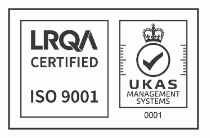My proposal didn’t get funded, what do I do now?
A lot of effort goes into creating a proposal, from bringing together the right consortium, to planning the project methodology and workplan, to drafting the proposal document itself. So it can be incredibly disheartening and disappointing when you receive that dreaded notice that your proposal was rejected.
Here are a few tips and guidelines of what to do when your proposal is rejected:
1. Don’t throw in the towel
Getting your proposal rejected is not the end of your story. Most funding calls allow you to resubmit your proposal on the next round of funding, giving you ample time to make amendments and come back with a proposal that is better and stronger than ever. Certain funding programmes do set limits on how many times you can submit the same or similar proposals, however this does not mean game over either. There are tons of new calls and funding opportunities being made available every few months, which means your project concept might find a new home under a different call or a different programme. Adapting your idea to the specifics of a different call might take a bit of adjustment, but you have the strong advantage that a lot of the work has already been done and you have a consortium behind you ready to back you up.
2. Understand the evaluation report
After putting so much work into making your proposal perfect, it’s easy to think that it was rejected for some arbitrary reason, however this is rarely the case. Proposal evaluations are conducted in a very systematic manner, with evaluators going through each section with a checklist in hand for specific elements to look out for. If any of these elements are missing or not sufficiently substantiated, evaluators will point them out in their report and mark it as a shortcoming, significantly lowering the overall score of your proposal. Even if some of the points raised in your evaluation report might seem of minor importance when compared to the overall project quality, addressing these points might very well mean the difference between your project getting funded or not.

3. Go back to the call guidelines
To fully understand a proposal evaluation report and make sure to satisfy all the evaluator’s comments in your resubmission you have to go back to the original call’s guidelines. You may have written the highest quality proposal imaginable, and while it may be an excellent project on its own merit, you won’t get any funding unless your proposal addresses exactly what the call is asking for. This may sound very obvious, however, we see many good proposals that simply miss the scope of the call, and sadly have to be rejected.
Re-read the call description as many times as necessary, each time asking yourself:
- Does the project fully address the call’s objectives?
- Does the project contribute to the call’s expected impact?
- Does the project impact all the target stakeholders specified in the call?
- Are all these elements fully explained and well-articulated in the proposal?
4. Re-evaluate your consortium composition
Sometimes it’s not the proposal that’s the problem, but the lack of appropriate critical infrastructure necessary to implement it with the available resources. No funding authority is going to fork out grants unless it has the absolute confidence that your consortium represents the right candidates for the job. The proposal must clearly articulate the importance of each consortium member, their roles, and how these all interlink in the work plan to bring about the expected impacts of the projects. It is worth evaluating before resubmission if any new expertise or infrastructure needs to be brought onboard to ensure the expected impact is feasible. This may mean inviting a new partner to the consortium, or obtaining expressions of interest from target stakeholders that will facilitate the implementation of the project.
5. Get the right guidance
Getting a proposal funded is no easy feat, and sometimes it may feel like a long process of trial and error until all the evaluator’s comments are sufficiently addressed. However your organisation might not have the luxury of going through years of resubmissions with constant re-evaluations of the proposal. Deadlines need to be met and cashflow needs to be secured. In writing project proposals, experience matters. Knowing what evaluators are looking for and how to pre-empt their comments is the key to getting a good score on a proposal. Therefore it’s important to get the right guidance from experienced partners who have written proposals before.
Here at AcrossLimits, we have over 21 years of experience writing proposals, having participated in over 70 successfully funded EU projects, ranging from Horizon 2020, Erasmus+, CERV and many more. We have a dedicated team of experts from a broad range of sectors that can guide proposal writing and help you apply for EU funds. Furthermore we are well connected with industry, academia and public authorities across Europe and beyond, making sure that we can bring together the perfect consortium for your project.
If you would like to learn more about how we can help you make your project idea a reality, contact us at: [email protected].

Alexander Camilleri
Project Officer at AcrossLimits



